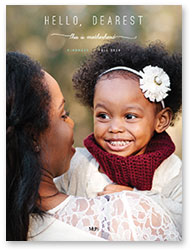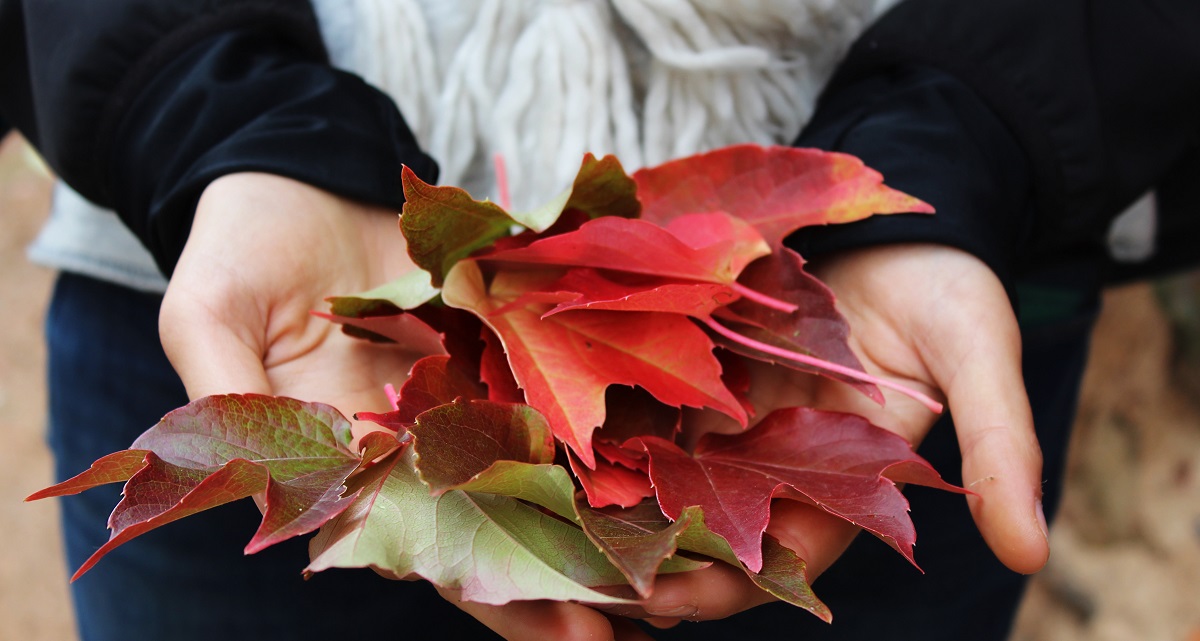Contact Us
“You have almost three dollars!” I tell her. We are sprawled on her bedroom floor amidst blocks and books, stuffed animals and blankets. Loose change is stacked into tidy piles at our feet – quarters, nickels, dimes, pennies – mountainous treasures to my 4-year-old daughter, Bee.
“I am ready to spend it, Mom,” she says in her proudest voice. “I know just what I want to do.”
I want to encourage her to save it, to portion it, to spend a small bit of it in the wisest way she can muster. Part of me knows this is a teachable moment for her.
But the other part of me knows this is a teachable moment for me.
—
We are at Target. She has chosen a sheet of alphabet stickers to pass out to random shoppers, and after we pay for them, after we exchange her treasured coins for an unknown adventure – she positions herself near the wide exit.
I crouch down in front of her, eyes to eyes. I give a few tips for approaching strangers, ask that she offer the stickers to parents before children, explain that some might not want a sticker, explain that a few might be busy, hurried, their focus elsewhere.
“Wait a minute, who wouldn’t want a sticker?” she says.
—
From an early age, we are taught to be kind, yet sensible. Help others, but be smart. Don’t be a doormat. Never allow yourself to be taken advantage of. Careful now, if you go out on a limb, you’ll fall right out of the tree.
—
I sit nearby as Bee hands out alphabet letters – “A is for apple, B is for baby” – to unsuspecting Target patrons. Some smile and decline, a few children accept with delight. Many are confused, still more pass by on their phones, never noticing the 4-year-old in braids offering stickers to all.
One man mutters something under his breath, his shiny shoes clacking quickly on the cold tile beneath.
—
We are taught that kindness requires a certain reaction – that our efforts are to be rewarded. Cause and effect. If this, then that. We are taught that kindness is a game with an agreed-upon set of rules – a grateful reaction deserves additional kindness; anything less is an unworthy recipient of our generosity.
—
I watch Bee approach a woman with my grandmother’s haircut. “Here’s a sticker for you!” she says.
“Oh honey, no thank you,” says the woman, digging keys out of her purse. “You should keep those! You need them more than I do.”
—
We are taught that offering kindness is a delicate waltz. Careful now, don’t offend. Don’t hurt their pride. Save face. Be nonchalant. Act cool.
We are taught that receiving kindness must be rationed on the deserving parties. We are taught that it must be strategic, that it must be thought out, that it must be controlled.
—
Soon, Bee’s sticker supply begins to dwindle. “Do you want to save the rest to enjoy later?” I ask.
“No,” she says. “I’m enjoying them now.”
—
We are taught that kindness is braking for bunnies, smiling at the barista, offering a bus seat to the elderly. Random acts of kindness, we say. Small, unassuming, protected. Sensible.
We are taught wrong.
There is nothing sensible about kindness.
—
Kindness is not offering stickers.
Kindness is offering ourselves.
We have forgotten this, but our children know. A mother says, “I see you might like a sticker.”
A child says, “I see you.”
—
That’s the thing about kindness; it requires deep vulnerability. It is a gift of connection, a generous offering of ourselves. It cannot be done sensibly, strategically. It cannot be rationed.
There is no such thing as a random act of kindness.
—
Bee has given out her last sticker – “Z is for zebra” – and she rushes over to me, rosy cheeks and untied shoelaces, gasping for breath through her excitement.
“Mom!” she cheers. “Can we do it again?”
We can.
—
We can do it again. We can do it daily, in small measures and large, this great task of offering ourselves. We can give stickers and service, we can give greeting cards and grace.
We can give a little, or we can give a lot. We can be mild with our kindness – sensible now, careful please – in the name of protection, in the name of smarts. Or we can offer the whole lot of ourselves, the whole lot of our stickers – again and again and again – in the name of love.
“I am ready to spend it, Mom,” Bee had said. “I know just what I want to do.”
—
As we pack up to leave Target, as we head home to make dinner, a young mother locks eyes with me in the parking lot.
“That really made my kid’s day,” she says to Bee. “Thank you.”
“Any time,” shouts Bee, skipping to the car as the sun slants. “Any time.”
—
She meant it.
Erin Loechner’s new book, Chasing Slow: Courage to Journey Off the Beaten Path comes out January 10th! Pre-order it online now at Amazon or at Barnes & Noble. Until then, she can be found (almost) daily wrestling through motherhood, faith and kindness at designformankind.com.

This article originally appeared in the Fall 2016 issue of Hello, Dearest. If you didn’t get a copy and would like your own, you can subscribe to get Hello, Dearest in your mailbox every season. If you subscribe, forward your receipt to magazines@mops.org and we’ll shoot a copy of the current issue in the mail to you for free … just because we like you.
